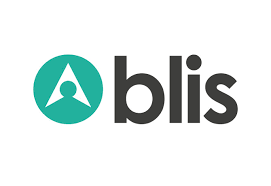Tell us about your role and journey into technology. What made you join Blis?
Back in the US, I was poached by a tech startup who was a client of the agency I worked for and became their first Marketing Director. This was during the time of the original internet bubble and brought me to the UK. From there I went back agency side – to a large global ad agency, then to a digital agency and then off on my own for seven years. I then joined Microsoft in the UK to run marketing communications for Windows Phone, which I did for four years. I spent the next 5 years in the startup accelerator space – at Microsoft and elsewhere. Then had the opportunity to do a maternity cover for a martech company, Unruly- this role led me to Blis. After spending the past year immersed in martech, I wanted to deepen my expertise in this area and I found Blis’ proposition and approach to the market to be very unique and appealing. Especially in the current climate of GDPR and low trust in the industry, joining a company that is putting verifiable data at the heart of things is really important.
As a Woman in Tech, what are the biggest challenges to leading Marketing Operations, in the Martech ecosystem?
One of the biggest challenges for Martech CMOs, is working in a crowded space and finding a way to cut through the noise. Technology has grown exponentially, especially in the advertising and marketing sectors where it has completely transformed how businesses operate. Being able to adapt to these rapid changes, while continuing to be innovative under constant budget pressures, really forces you to prioritize and make decisions that best align with your business goals.
Could you tell us more about your experience as Microsoft’s Startup Lead?
When I led marketing for the Windows Phone in the UK, the opportunity came up to take a role in another part of the company focused on launching and running Microsoft’s startup accelerator in London. I took the role and, with only a five-week runway, I got to build an incredibly challenging project from the ground up and, over 2.5 years, work with 40 amazing startups. I found it so rewarding to be able to help these young founders–even a quick introduction can be game-changing for them. They continue to inspire me.
How do you mentor your product marketing team at Blis?
I love working with and motivating teams; it’s always such a thrill to create something amazing together and see our work out in the wild. I believe that a key part of my role is to ensure that the people who work with me are successful by ensuring they have opportunities to grow and be challenged to do things they didn’t know they could do. I think this is a very important aspect of any leadership position that shouldn’t be overlooked.
What is the current state of Location Data? How does Blis deliver on its ROI promises for mobile advertisers and publishers?
Location data enhances retail marketers’ understanding of consumer behavior in the physical world, can measure marketing campaign effectiveness in driving consumers in-store and to purchase, and connect the dots between different platforms including TV, desktop and mobile. Blis’ location-data technology is designed to help agencies and brands deliver the right content to the right customers at the right time. For marketers, having the ability to accurately reach and engage consumers with greater relevance and precision ultimately leads to a greater return on ad spend and, thus, increased revenue growth.
How do you see Location Data disrupting the way Omnichannel Marketing is executed globally?
I think location-based data will continue to permeate into every aspect of our lives, especially as we rely more and more on our mobile phones and other connected devices to help us in our daily lives. For brand marketers looking to ensure they’re reaching consumers in a highly engaging, relevant way, this type of verified, accurate information is going to begin to make a more meaningful impact than anything else related to the customer experience that currently sits with the marketing function. This applies to anything: getting a traffic forecast before heading out to work, getting local, regional and national news updates, and even getting movie theater showtimes at your local theaters.
How much have Marketing and Advertising operations changed since the arrival of Location Data platforms?
Location data has allowed for more accurate audience identification and profiling, leading to more accurate targeting and scale than ever before. For marketers, there’s no more valuable tool to paint a holistic picture of where your audience goes throughout the day. Having this ability to accurately reach and engage consumers with greater relevance and precision ultimately leads to increased revenue growth.
Which brands are the best at leveraging Audience Data and Customer Data Platforms for omnichannel advertising?
One of our customers, Tropical Smoothie, wanted to raise awareness of their cafes as well as promote a new menu special. Tropical Smoothie leveraged Blis’ best in class location data and technology to identify their audience and drive them into stores. With our technology, we were able to determine how many people actually visited a Tropical Smoothie Cafe after seeing an ad and, even more importantly, a customer’s likelihood of walking in. Results showed that all four of the core audiences identified at the outset of the campaign were effective at driving uplift when exposed to an ad. While Tropical Smoothie’s existing customers naturally had the highest control group footfall rate, we were able to increase their likelihood of walking into a café by 61% with a single ad. The campaign was also able to surpass the average .5% footfall rate for the restaurant category at a .76% footfall rate, which shows how important it is to properly segment your target audience and use location data to place an ad at the right place and the right time.
Could you tell us about an outstanding digital campaign from your experience?
We recently won an American Business Award for a campaign that Blis ran in the US. We launched a targeted campaign for a premier design studio that wanted to reach out to the members of the creative community in New York and promote and drive attendance to its May 2017 Design Festival. The campaign’s key performance objectives were to drive foot traffic to the physical event. An added layer of complexity was the niche and difficult-to-reach target audience, comprised of design professionals and creatives. Blis used its proprietary tech, Data Management Platform (DMP), and first-party data to serve ads to the right audience at the right time, reaching more than 60% of the creative community in New York City. The client received rich insights on the location that yielded the greatest engagement for those who came to the event based on where the ads were shown, and generated 5,885 clicks (as well as the generation of 182,356 uniques). In addition, 261 individuals attended the event as a result of the advertising campaign.
Which marketing and sales automation tools and technologies do you currently use?
At Blis, we rely most heavily on Hubspot for our email marketing, nurture campaigns, lead tracking, and social media. I also really like Trello as a productivity tool for team engagement and accountability.
What are your predictions on the most impactful disruptions in marketing operations for 2018-2020?
- I believe, as all of Blis does, that within five years the ad industry will transition into using blockchain as a transactional ledger, and, within a decade, we’ll likely see it become a new industry standard. Digital advertising commonly relies on disparate data sets to help identify audiences likely to buy products and services, and blockchain could be a gamechanger for the entire industry. The end-to-end processes of booking, buying, and placing digital ad space will be recorded and stored, and blockchain will help bring about greater transparency and end ad fraud, benefiting all parties involved.
- I also predict that cost-per-visit (CPV), where brands will only pay for actual store visits, is the future of location-based advertising. This is a model that Blis has pioneered over the past few years and we’re already seeing success with it. Transparency always wins in the end.
What startups in the technology industry are you watching keenly right now?
From my years working with startups, I always have my eye on companies that came out of my prior accelerator programs – in the ad tech space, I love Vidsy, who is creating mobile video ads ad scale through its creator community.
How do you prepare for an AI-centric world as a Marketing Leader?
To keep up with the technological disruption in our industry, we believe in investing in new technologies and measurements to ensure that all of our interactions are clear and coherent, and artificial intelligence plays a big part in it. AI has the ability to not only automate tasks but also help validate and analyze data, ensuring it’s accurate and thus effective for marketers.
Last year we introduced Blis Futures, an AI-powered, predictive location modeling solution that uses our proprietary deep learning technology to identify consumers most likely to visit specific locations, then provides advertisers a guarantee they will only be charged per consumer visit. Blis Futures uses machine learning and predictive analytics to group like data sets and identify patterns, which in turn builds audience segments based on their predicted conversion rates. The launch of Blis Futures demonstrates a continued investment in physical performance metrics and technologies that are powering our solutions like artificial intelligence.
How do you inspire your people to work with technology?
I don’t think it takes a lot of inspiring – tech and life are now pretty much inseparable. Of course, change is hard, so people may be hesitant to try new things, but change is also good. I typically try to lead by example in this type of scenario.
One word that best describes how you work.
Focused
What apps/software/tools can’t you live without?
Citymapper is my top app. Though I’ve lived in London for nearly 20 years, I still use it every day to help me find the quickest way to get places.
What’s your smartest work related shortcut or productivity hack?
My favorite productivity hack is to recognize my most productive time of day (for me it’s the mornings) and block out time in my diary to get meaty projects or tasks done when I’m at peak productivity.
What are you currently reading? (What do you read, and how do you consume information?)
It’s critical to keep up on the latest news and trends as they happen, so I read from many different sources in order to get a broad, holistic view of whatever the topic may be. Twitter and The Economist are two of my favorites. On my down time, I typically read fiction and am a recent Kindle convert. I also just finished Pachinko by Min Jin Lee.
What’s the best advice you’ve ever received?
One of my former CEOs always encouraged his team to fail fast and learn from our mistakes. He used to gather us for meetings and ask what mistakes we made that quarter. Once we admitted it, he would hand us $100 and say, “I’m not going to pay for the same mistake twice.” His words really stuck with me and I ask for the same transparency and willingness to try and fail from my teams.
Something you do better than others – the secret of your success?
Positivity is most definitely my superpower. I’m always finding innovative solutions and angles and ways to problem solve–powered by my positive attitude.
Tag the one person in the industry whose answers to these questions you would love to read:
I would love to read more from Arianna Huffington. She’s such an aspirational businesswoman and has made a tremendous mark in the publishing industry.
Thank you, Diane! That was fun and hope to see you back on MarTech Series soon.
As CMO of Blis, Diane is responsible for overseeing the planning, development, and execution of Blis’ global marketing and advertising initiatives. Diane is an established marketing leader with big brand experience at Microsoft, as well as startup, scaleup and agency-side experience. She is an American who relocated to London over 18 years ago with a startup and has worked primarily with tech and telecoms companies during her London career, which spans Grey London, Wheel (acquired by Digitas/LBi), Microsoft and Unruly, as well as her own virtual agency. While at Microsoft, Diane led UK marketing communications for Windows Phone and later created and ran the Microsoft Ventures Accelerator, graduating nearly 40 startups. She was subsequently the CMO at global startup accelerator MassChallenge. Diane spent the past 9 months as Interim CMO (maternity cover) at video ad tech company Unruly, one of the hottest tech scaleups in London’s TechCity.
 Blis is the global pioneer in location data. Our proprietary technology and platform helps agencies and brands use location data to better understand consumer behavior, allowing for effective targeted advertising to drive business outcomes. We believe that where you go defines who you are, and advertisers must capitalize on these insights for meaningful marketing experiences across devices. Our technology filters and scales location data, giving advertisers access to the most accurate location events, location data, and unique devices. The data is then applied across the apps that matter most to their consumers for targeting based on rich insights. Clients are supported by our location experts or can work in an agnostic service model of their choice. Since creating the world’s first location data technology platform in 2004, Blis has grown to be a global company with 17 offices across 5 continents. Blis’ clients include all major holding companies as well as leading brands in top verticals including Samsung, McDonald’s, HSBC, Mercedes Benz and Peugeot.
Blis is the global pioneer in location data. Our proprietary technology and platform helps agencies and brands use location data to better understand consumer behavior, allowing for effective targeted advertising to drive business outcomes. We believe that where you go defines who you are, and advertisers must capitalize on these insights for meaningful marketing experiences across devices. Our technology filters and scales location data, giving advertisers access to the most accurate location events, location data, and unique devices. The data is then applied across the apps that matter most to their consumers for targeting based on rich insights. Clients are supported by our location experts or can work in an agnostic service model of their choice. Since creating the world’s first location data technology platform in 2004, Blis has grown to be a global company with 17 offices across 5 continents. Blis’ clients include all major holding companies as well as leading brands in top verticals including Samsung, McDonald’s, HSBC, Mercedes Benz and Peugeot.
The MTS Martech Interview Series is a fun Q&A style chat which we really enjoy doing with martech leaders. With inspiration from Lifehacker’s How I work interviews, the MarTech Series Interviews follows a two part format On Marketing Technology, and This Is How I Work. The format was chosen because when we decided to start an interview series with the biggest and brightest minds in martech – we wanted to get insight into two areas … one – their ideas on marketing tech and two – insights into the philosophy and methods that make these leaders tick.











